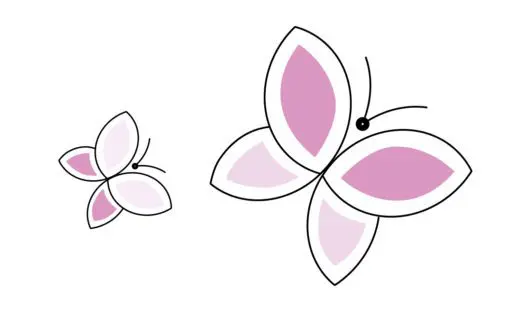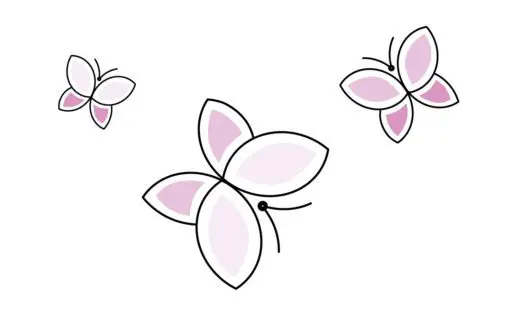What will happen when my child dies?
Death, much like birth, is different for everyone. What you can and should expect is that no matter where they are, they will get medical support to make sure they are as comfortable as possible. Everyone involved in your child's care will talk with you honestly, with respect for your fears, wishes and feelings. We also try to answer some common questions below.
Can I help with palliative care?
Doctors and nurses can help you be closely involved in the care of your child, if this is what you want. They know that you are the expert when it comes to looking after your child. If you are thinking about complementary therapies to help to manage your child’s symptoms discuss your plans with the staff looking after your child. They can advise you on the best way to introduce and use these therapies. It’s always best to take advice from medical staff if you are considering introducing any medicines or therapies other than those prescribed by the specialist team.
How will I know when my child is nearing death?
Your child’s body will slowly start to slow down which means they might need to sleep a lot more and be less responsive when they are awake. They might also slip in and out of consciousness, sometimes seeing or hearing things. They might not want to eat or drink much, and have less control of their bladder and bowel movements. Breathing patterns can change and their skin might feel cooler. Sometimes, people can also become restless or confused but your calming presence and attending to their medication might help to ease this. Not everyone will experience these though, and it might happen more rapidly.
However, death – just like birth – can be hugely variable and it’s always best to talk through your concerns or questions with the palliative team caring for your child.
Will my child be in pain?
The team looking after your child are highly skilled and experienced. They will do everything that they can to make your child peaceful and comfortable but your child might then not be awake; it’s a balancing act that you and the whole team will discuss and manage.
How can I help my child?
Sometimes young people and children ‘hold on’ because they sense people’s sadness and don’t want to upset you. One of the most important things you can do for your child is to give them permission to let go. This doesn’t have to be through words. You can do this by creating a peaceful and calm environment – maybe lowering lights, playing soothing music and having their pet close by. If you’re in hospital your presence, touch and voice can be a great comfort. Even if your child isn’t fully conscious, they may still be able to hear you.
Reassure them that it’s ok and that you’ll be alright. You could let them know that a relative will be there waiting for them, or to use a story to take them on a journey – something called guided imagery or visualisation.
How will I cope?
The thought of coping with the pain after your child dies can seem impossible. On the other hand, you might feel a sense of relief that they are no longer suffering – although this might make you feel guilty, it’s quite common for parents to feel this way.
It’s also normal to feel quite numb and go into ‘autopilot’ while you make arrangements for the funeral. Everyone experiences grief in different ways at different times but you can be sure that anything you feel is completely normal.
Although you might feel lost, you won’t be alone. Family, friends and your community might want to help – though, you might have to help them understand what you need. You’ll also have the knowledge and skills of an experienced team of professionals who will help you and guide you through the choices ahead of you.
Simon, Hannah's DadA mixture of emotions is quite common, it’s one of the things I remember – utter devastation at losing her but relief that she was no longer suffering. One way I have come to learn to deal with it afterwards is thinking that we, as her parents, are now carrying the pain so that she doesn’t have to. Numbness is very common, everything feels very surreal, almost like it is happening to someone else. One distinct thing I do remember, and as I found out later was also experienced by my wife, was when Hannah took her last breath, with myself on one side and her mum on the other, we both sensed an uplifting feeling around her body. I am not religious and have always been sceptical about ‘spirits’ and the ‘afterlife’ but felt comforted by that feeling, even if I couldn’t really explain it and as to whether real or not, allowed us to be able to detach ‘Hannah’ from her ‘body’ emotionally.
How do I take care of brothers or sisters?
All sibling relationships are unique so your other children could react in many different ways. They might be very aware, not only of their own grief but of yours too, so may choose to keep their feelings to themselves. You’re likely to know what they need more than anyone, but no one is expecting you to be superhuman. It might be a good idea to ask a close family friend or another family member to stay nearby who you know will be able to focus their attention on their needs.
What can I do to take care of my child after they’ve died?
Whether you’re in hospital, a hospice or at home, you should be supported to care for or spend time with your child – whether that’s to have a cuddle, remove medical equipment, tidy their appearance, take a lock of their hair or a handprint, or to just be with them.
In hospital, staff would usually wash your child and replace dressings. This can be an important and comforting ritual to perform and you can ask staff if you can help with this.
There may also be specific cultural or religious preparations you’d like to carry out, so inform staff about this if you are in a hospice or hospital. Your child can be taken home before, or instead of, going with a funeral director. This means you can take as much time as you need to do these things, to have family round and to say your goodbyes.
An excerpt from In our own wordsIt is important not to be rushed after your child has died as you will be left with the memories. However you choose to manage this time is absolutely OK.
Can I donate their organs?
An organ donation is not usually possible if your child has died after cancer treatment. However, you may be able to donate corneas or tissue but check with your team. Some young people and parents choose to donate their child’s brain or whole body for research into future cures. You have to speak to your team as soon as you’re able.
The Human Tissue Authority could help you if you have any questions.
Where will my child stay before the funeral?
After your child dies, you have a number of choices:
- Your child can be taken to a funeral parlour when you are ready and remain there until the funeral. You can make arrangements to visit them here if you like.
- Your child can be taken to a funeral parlour and then return home at any point before the funeral.
- Your child can be taken to a hospice, where they have facilities where your child can stay, with you if you wish, until the funeral.
- Your child can remain at home with you until the funeral.
Simon, Hannah's DadIn Hannah’s situation she was taken by the funeral director the day following her death, this was quite soon after we had contacted them. We had made no previous arrangements or even thought about it, in order to concentrate on Hannah while she was still alive. We managed to arrange fairly quickly that her Celebration of Life would be the week on Monday and that the coffin we had chosen would be delivered on the Wednesday and that she would be brought home in it to spend the time at home between then and the Celebration of Life.
Can I keep my child at home?
For some parents, being able to keep their child at home after death is an important time to prepare for the final goodbye of the funeral. It’s not an easy thing to think about but it’s important to know that there will be some physical changes that happen to your child’s body after their death. It’s best to talk to your nurse to prepare yourself.
If you plan to keep your child at home for more than a couple of days, talk to a funeral director and your nurse about making the environment suitable.
Being separated from your child after death
The point when you have to say goodbye to your child is likely to be very emotional. If they’re at home then you may prefer to remain in another part of the house or choose not to be at home. You can carry your child from your house or you may ask for help from your family or the funeral director/ambulance service.
Simon, Hannah's DadSeeing the car off and then the thought over the next few days of her being at the funeral directors was difficult. Parents often worry about their child being ‘on their own’, or cold, or somewhere unfamiliar. It is a difficult transition to make mentally from having your child with you alive, to them being dead and taken away somewhere else.

